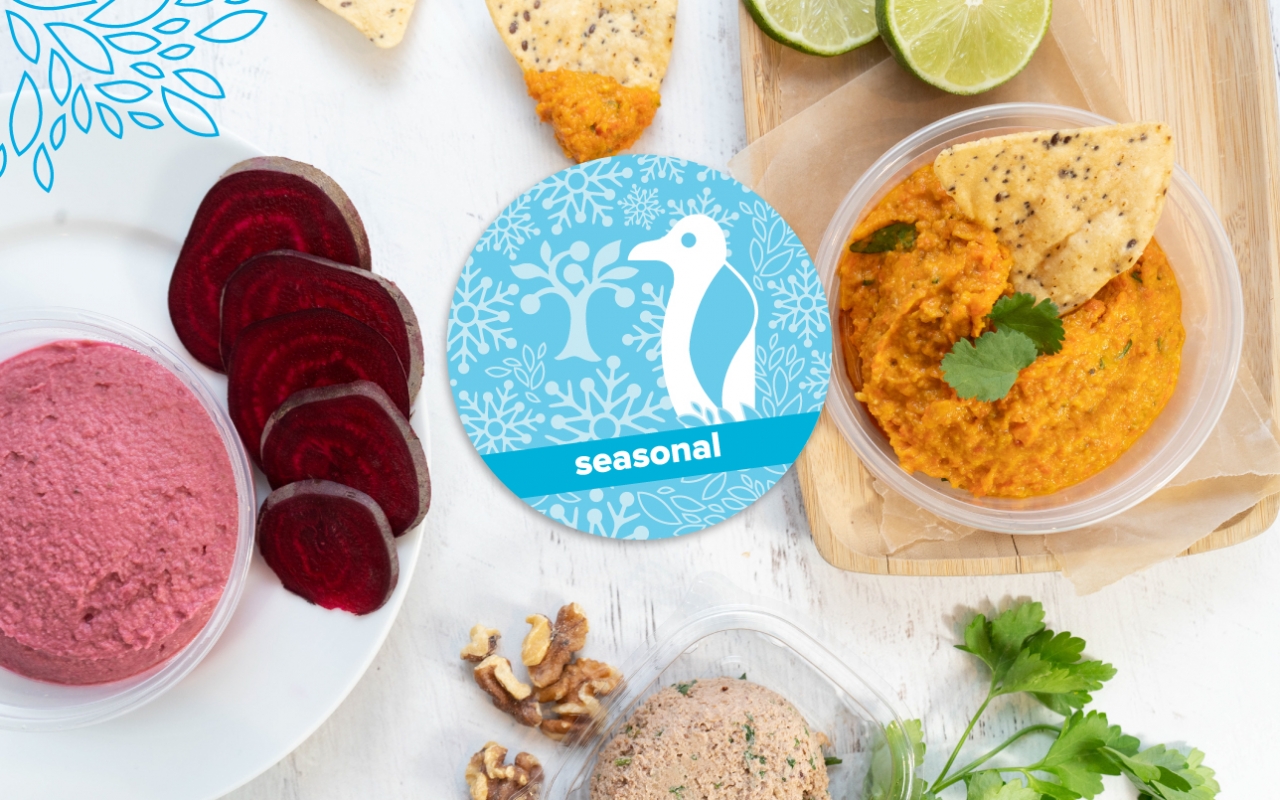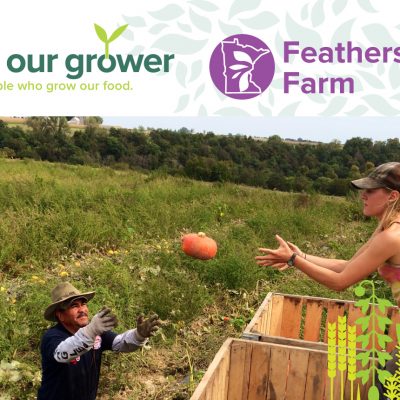
Our staff works hard year-round to make great food for our owners and shoppers. Seward employees bring new ideas and recipes to the Seward Co-op Creamery Café production kitchen, so what’s in stores is always fresh and fits the season.
Look for these and other new Seward-made items this winter.
Sausage
 Garlic Kielbasa
Garlic Kielbasa
Seward-made Garlic Kielbasa is half beef, half pork and features local Community Foods producer Peterson Craftsman Meats in Osceola, Wisconsin. In Poland, the sausage is known as wiejska, which means rural. Paprika and marjoram give classic kielbasa flavor to ours. It’s smoked hot over cherry and hickory wood. Pair with scalloped potatoes, cabbage, stew, sauerkraut and onions.
 Swedish Potato Sausage
Swedish Potato Sausage
Yukon Gold potatoes make this Scandinavian holiday sausage light and fluffy. In Sweden, it’s known as potatis korv and is cooked by poaching the links and then browning lightly in butter. The Swedish Potato Sausage is crafted using pork from local Community Foods producer Peterson Craftsman Meats in Osceola, Wisconsin. The sausage is seasoned mildly with white pepper, nutmeg and bay leaf—and pairs with casserole, stew, pickled herring and sauteed mushrooms.
Sweet Spanish Sausage
Launching Dec. 15, this traditional Catalan sausage—called Butifarra Dulce—is popular during the winter holiday season. The flavors are reminiscent of egg nog, only enhanced by the traditional cooking method of poaching in water or sweet wine with cinnamon and lemon zest. This sausage features pork and honey from Community Foods producers Peterson Craftsman Meats and The Beez Kneez, as well as sherry, heavy cream, salt, black peppercorn, grains of paradise, lemon zest and sweet cinnamon. Pair with caramelized apples, polenta, braised kale and chickpeas and Tortilla Española.
Haggis Sausage
Enjoy a taste of Robert Burns Day (Jan. 25) with haggis, the national dish of Scotland that inspired this limited-run sausage. Serve with turnips and potatoes—or roasted carrots from Featherstone Farm, a local Community Foods producer in Rushford, Minnesota.
Bakery
 Caramel Shortbread
Caramel Shortbread
Our bakery staff whipped up this twist on a popular crunchy caramel candy bar. Seward-made Caramel Shortbread is sweet and rich, with buttery caramel and dark chocolate on a tender crust and garnished with toasted pecan and finishing salt. The dairy, flour and chocolate are sourced from Community Foods producers.

Chocolate Hazelnut Biscotti
This might as well be called the Community Foods biscotti, as the chocolate, flour and butter used to make it are from vendors who are part of the program. It’s rich, nutty and chocolatey (of course), with hints of toasted hazelnut, coffee and spice. Dip in a coffee or an Egg Nog Latte—both available at the Deli counter right by the baked goods.
Grab & Go
 Mushroom Stroganoff
Mushroom Stroganoff
With 19th-century Russian origins, stroganoff has become a tradition in Minnesota. Ours is rich, creamy and well-seasoned and includes ingredients sourced primarily from Community Foods vendor Co-op Partners Warehouse and Albert’s Organics: shiitake mushrooms, vegetable stock, bow tie pasta, white wine, sour cream, all-purpose flour, butter, garlic, salt, yellow onion, thyme and black pepper.
 Vegan Mac and “Cheese”
Vegan Mac and “Cheese”
A comfort food favorite made without the ingredient that is its namesake. Ace Fox, production shift lead, perfected the recipe at home before introducing it to Grab & Go. “It’s made with a combination of soaked cashews, coconut milk, boiled vegetables and nutritional yeast, which gives it the creamy texture that people might miss about cheese,” Ace said. “It’s a great alternative for those of us who don’t consume dairy.” Local Community Foods producer Heartbeet Farm in Zumbro Falls, Minnesota, provides the carrots and potatoes for this recipe.
